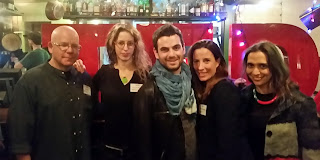Have you lost a loved one who has left digital traces of their life?
The Digital Memories Study is a UK research study exploring the experience of being bereaved of a person who has left behind digital traces, and is now seeking participants.
These days we live so much of our lives online and using devices. As we post, chat, like, mail, tweet and surf, we leave traces of ourselves in digital spaces. When someone dies, these traces can live on after their death. In the past, when a person died, bereaved people could look back at physical memories of the dead: photographs, letters, and personal effects. In the digital age, bereaved family and friends can also have access to a great range of digital memories: photos, emails, social media accounts and activity, messages, videos etc.
The Digital Memories Study is exploring the experience of being bereaved of a person who has left behind these often vast a varied digital remains of their life.
What do we want to do?
Interview friends & family of people who have died & left behind digital material (interviews in person, via phone or video calling).Ask participants to keep a study diary (optional)
Who are we looking for?
Adults (18+) bereaved of a person who has left digital traces of their life. The deceased must have been 18+ at time of death.
The deceased must have died between 3 months ago & 5 years ago.
Particularly seeking multiple people affected by a death, as well as individuals.
What are digital traces?
Material left online & on digital devices by, or relating to, the deceased e.g. text messages, emails, social media activity, blog posts, photos, videos, playlists, gaming histories etc.To take part or ask a question, please contact:
digital.memories@nottingham.ac.uk
+44 (0)799-905-9011
Or visit: www.digitalmemories.info
























